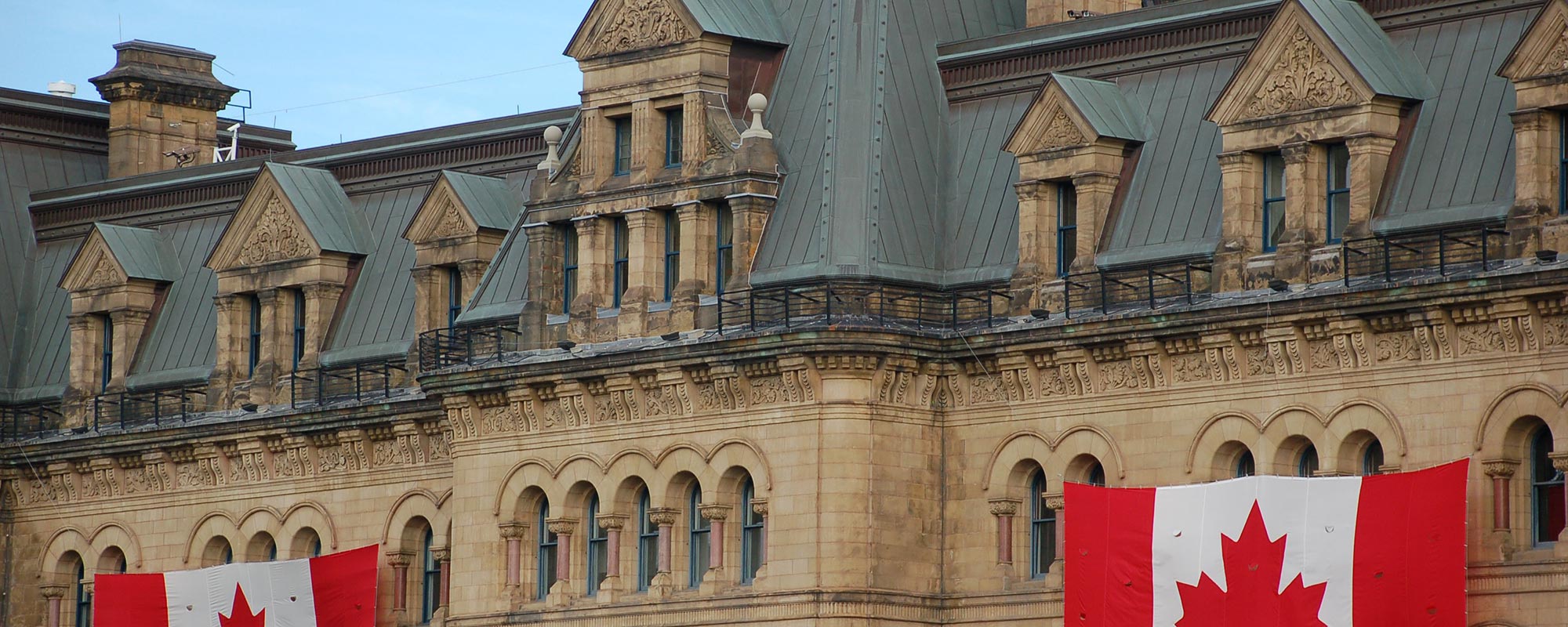Of the many tools at the disposal of a government in times of profound uncertainty, the least used yet so powerful is that of a “reference” to its highest court. The federal government has had resort to the Supreme Court of Canada (“SCC”) for such thorny issues as Quebec secession and same-sex marriage; provinces called references on the patriation of the Constitution, eventually appealed to the SCC. Canada’s freshly minted Justice Minister David Lametti could bring to Cabinet for their approval, pursuant to Supreme Court Act, R.S.C. 1985, c. S-26, s. 53(1) or (2), a reference to the Court, regarding the proper constitutional relationship and protocol between the Prime Minister, Cabinet and Attorney General on a Criminal Code prosecution, plus how that relationship attracts solicitor-client or litigation privilege, if at all.
Why call a reference? Because Canadians don’t know what to believe. The Justice Committee hearings underway will not result in any answers, only more questions. But it turns out that the questions raised invoke constitutional conventions, the existence and scope of which the Supreme Court has opined upon time and again.
Last week, before the Justice Committee, the Privy Council Clerk cited a constitutional convention he called the Shawcross doctrine, to excuse executive interference with SNC Lavalin’s prosecution. (The doctrine is the AG’s to use, in fact, not for the PMO or PCO to abuse, but that convention’s scope could be cleared up by the Court).
Resignations have fuelled the scandal, the most significant of which is that of a Cabinet Minister: former Attorney General, Jody Wilson-Raybould. Unsolicited Cabinet resignations are constitutional moments of government dissent by a Member of Parliament, whose expression of dissatisfaction cannot be more powerfully put than departing from the Executive Council on principle. The PM’s consigliere has also resigned from the Prime Minister’s Office, heightening the political intrigue but not of significant constitutional relevance, as he denied any wrongdoing.
Meanwhile, a charade of censorship purports to gag the former Justice Minister, based on faux claims of privilege — namely, solicitor-client privilege and litigation privilege — owed by Hon. Ms Wilson-Raybould to the Prime Minister. This is the shakiest case for self-imposed suppression in memory. (Not that we don’t take legal privileges very seriously at the CCLA. In 2015, we went to the Supreme Court of Canada to fight anti-terrorism laws that compromised solicitor-client privilege. The Court agreed, upholding the constitutional protections attached to solicitor-client privilege, declaring it a hallowed principle of fundamental justice).
This only underscores the caution against abusing such privilege for political purposes, by denying transparency and accountability in the name of protections intended to protect due process, not political reputations (so, for example, the late Eddie Greenspan was able to defend himself after his client Conrad Black challenged Greenspan’s unimpeachable integrity).
It’s hard to argue that solicitor-client privilege applies where there is no solicitor involved. It turns out that Ms Wilson-Raybould let her membership lapse with the Law Society of B.C. So she was a non-lawyer Attorney General. The Law Society this week flatly ruled out that privilege as applying to her because she lost her legal privileges. So that leaves litigation privilege, which does apply regardless of her non-solicitor status. It protects particular communications by particular people regarding the prosecution of SNC Lavalin. But that privilege was waived long ago by the Prime Minister and his former Principal Secretary when they both publicly stated their version of what was said. Then to further complicate matters, the former AG gave her side of the story before Cabinet this week. While that deliberation is protected by Cabinet privilege (often observed in the breach, it must be said), the recitation of potentially privileged information in a political, rather than a legal context, to a roomful of people who are not parties to the litigation, ends whatever litigation privilege attached to that information, arguably.
Nevertheless, it remains a live issue, as of this writing, with little chance of being resolved, absent an official ruling, which apparently cannot be found within the executive ranks. One of the questions for the Supreme Court of Canada to rule upon, then, would be: where and when does litigation and solicitor-client privilege apply, if at all, between Attorney General and Prime Minister? Furthermore, does having a non-lawyer Attorney General change that?
Canadians are wondering what’s going on in Ottawa, unsure whether this controversy is worth the ink being spilt. What’s a PMO, exactly and who is Gerald Butts? They did what, for who, and why is that a problem? Absent a criminal trial, there will be no definitive answers forthcoming as to how the system is supposed to work, when a major Canadian employer is being prosecuted for a crime, while very publicly seeking, nay campaigning, for a remedy unavailable to the hundreds of thousands of people prosecuted every year in Canada.
People deserve a justice system they can trust but I doubt most elites know its true reputation among the hoi polloi. For part of my adult life, I never imagined the Canadian justice system as being capable of corruption. When I began working with indigent criminal defendants, however, I learned that most of them assume the system to be rigged; that powerful people operate levers that punish enemies and reward friends. The masses are skeptical, no doubt, sharing neither my former adoration nor defendants’ hatred of a system that feels like a juggernaut, a conviction machine, where the presumption of innocence is a joke. The PM and his supporters are perhaps getting that feeling, at last, themselves. Our justice system today is nothing if not merciless.
Calling a reference to the Supreme Court of Canada would permit a full airing of these issues without the attendant soap opera politics underway, with greater certainty being brought to the important principles of quasi-judicial independence — which, I should add, is interpreted inconsistently across Canada, depending on the province and sometimes even within a province or territory. A reference could ask the questions: who can discuss what with the Attorney General about a Criminal Code “remediation agreement” requiring her quasi-judicial consent? What communications are privileged and under what circumstances might that privilege be lost?
The principle at stake is nothing less than the independence of the justice system, and just how exactly the different branches of the state are supposed to function during a criminal prosecution. The judicial branch presumably shouldn’t be hearing from the PMO, ever, about anything other than budgets and appointments. The executive branch — the PM and Cabinet — gets involved with prosecutions never or sometimes or … what say you Supreme Court of Canada? Lastly, what is the proper relationship between Cabinet and Attorney General, this strange constitutional animal that’s an elected politician appointed to her position in Cabinet by the Prime Minister, who has both policy duties (cannabis legalization, DUI laws, jury law reform) and quasi-judicial duties (criminal prosecutions and constitutional litigation). What is the statutory law and what constitutional conventions apply to all these acronyms?
All of this boils down to whether and how the Attorney General, in exercising her quasi-judicial duties, consults with the Executive branch of the state, in her determination of the public interest. That determination is a decision-point for any quasi-judicial officer in the conduct of a prosecution. The evidence, facts, and law are considered, plus the public interest. We at CCLA believe that, unless they put it all on the record (in writing, via Canada Gazette, or in Parliament), there should be no more contact between Cabinet and the Attorney General on such matters as they would have with a judge, if only to confer the necessary appearance of independence along with the substance of it. In the alternative, the UK constitutional practice suggests that the Attorney General, who does not sit in Cabinet, may solicit input from Cabinet Ministers on salient points, but should not be pressured by anybody, nor receive unsolicited advice.
There are alternative views, which makes a Supreme Court of Canada reference all the more necessary. The federal Director of Public Prosecutions will have a view, as may other provinces, who might rightly wish a bright line, given that they prosecute plenty more than the feds. On the other hand, perhaps some civil society groups wish that there were more Executive interventions in the name of remedying systemic discrimination. The Chamber of Commerce may have something to say about the impact of all this upon business and the economy. Something tells me SNC Lavalin would seek standing.
Former Ontario Attorney General and Chief Justice Roy McMurtry explained much of this when he rose in the Legislative Assembly of Ontario in 1978 to explain why the Crown would not prosecute a (resigned) P.E. Trudeau Cabinet Minister for alleged criminal wrongdoing. It was an officious act that bolstered public confidence and opened up the decision to complete transparency. The same goals might be accomplished, to the betterment of the administration of justice, through a reference to the Supreme Court of Canada, on Executive Council-Attorney General communications regarding a Criminal Code prosecution, and any legal privilege attaching thereto.
The insider’s objection to the reference idea is timing. On the one hand, the autumn election does not make the issue moot; it’s of lasting significance. On the other hand, the government realistically won’t call a reference unless they’re betting that they can benefit from it pre-election, believing their position to be defensible. However, there is nothing stopping the Governor in Council (Cabinet) under the statute from putting timelines in place. It is open to the Court to refuse to hear a reference, and they may refuse to meet the requested timelines, although I would be surprised if a reasonable timeline was ruled out. Other countries, like Israel, have a Supreme Court that will sit on a moment’s notice, literally, when called upon for guidance, just as the US Supremes turned around Gore v. Bush with alacrity. If Canada cannot seek a reference and get an answer to these pivotal constitutional questions in a few months, Canadians rightly have to wonder, as we often do at CCLA, just whose justice system this is.
Michael Bryant is Executive Director and General Counsel of the Canadian Civil Liberties Association. He was the 35th Attorney General of Ontario 2003-07 and clerked at the Supreme Court of Canada in 1992/93.
About the Canadian Civil Liberties Association
The CCLA is an independent, non-profit organization with supporters from across the country. Founded in 1964, the CCLA is a national human rights organization committed to defending the rights, dignity, safety, and freedoms of all people in Canada.
For the Media
For further comments, please contact us at media@ccla.org.





